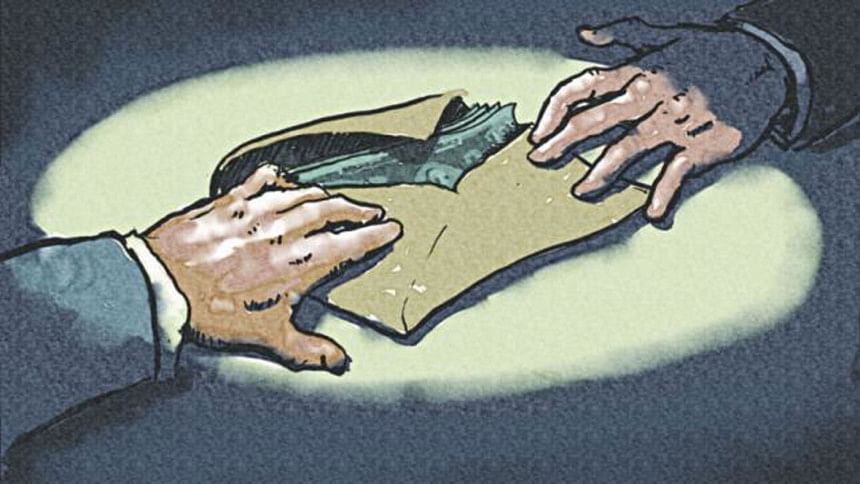‘Moddhorater Ossharohi’ vice chancellors

The subject matter of this write-up is the ranking of the world's best universities. But I would like to start on a different note, quoting from legendary journalist Foyez Ahmad's book "Moddhorater Ossharohi" (roughly translated as "Midnight Horseman").
Foyez Ahmad and a few of his friends who worked in different newspapers used to live in a shared mess in Bhooter Goli, Narinda. Work at the newspaper offices usually took till 2-3am, with some spreading out newspapers on the table and sleeping there for the rest of the night while others like Foyez returned home.
That year, a major flood occurred. During the day, they could use small boats to reach the office but at night, with no boats available, everyone returned home wet from the waist down. Except for Foyez. Mohammadullah, assistant editor of Ittefaq, even caught a cold from constantly getting drenched on the way home. The "mystery" of how Foyez stayed dry was on everyone's lips.
One night at 2:00am, Mohammadullah told his friend Foyez, "I will go with you tonight. I want to see how you go home without getting wet." Foyez's work ended at 3:00am and the two friends left the Ittefaq office. In Hatkhola, close to the Ittefaq office, was a Christian graveyard which could be reached by crossing the rail line beside the Hordeo glass factory. Opposite the graveyard was the Baldha Garden and beside it, the road which led to Narinda. Many horses could be seen there, eating grass at the graveyard. After driving horse carriages throughout the day, the coachmen would leave their horses to graze at night.
Foyez had made friends with one such horse and would ride it across the flooded streets every night to the mess. That particular night, the horse rebelled at having to take two riders and Mohammadullah at the back fell into the water. Foyez, however, still managed to reach home dry in the middle of the night.
The tradition of newspaper offices working till late no longer exists—reporters are not required to return home in the middle of the night. So what? These days, we are seeing university vice chancellors working till the late hours of the night. Professor Nazmul Ahsan Kalimullah, vice chancellor of Rangpur's Begum Rokeya University, is well ahead of others in this aspect—he works till midnight or even later at night. A few days ago, Kalimullah mentioned that he works 20-22 hours a day—meaning he only sleeps for a couple of hours. The vice chancellor who was present on campus for only 240 of the last 1,447 days—or who was absent for 1,207 days—most probably thought no one believed him. So, on the eve of his departure, he took a class at 3:30am at night.
It's actually difficult to not talk about the VC's antics. He was in the habit of taking a morning flight to Rangpur and returning home by evening. On one such occasion, he was at his campus residence when teachers and staff members gathered outside the bungalow with several demands. The next day, newspaper headlines read "Vice Chancellor Kalimullah left through the back door to flee to Dhaka".
He has literally acted in a Bangla motion picture. He even told Bangladesh Protidin that he is willing to take up the role of a male lead if approached. There are several serious allegations of corruption, including for teacher recruitment, against the VC. For example, he appointed his own mother as a member of the recruitment board. The University Grants Commission (UGC) recommended taking action against him after finding proof of corruption. However, the ministry remained indifferent and Kalimullah finished out his tenure.
Before coming to the discussion of university rankings, let us get better acquainted with several other vice chancellors.
Recently, in the middle of the night, several Chhatra League leaders demanding jobs took position in front of outgoing Rajshahi University Vice Chancellor Professor M Abdus Sobhan's house. He assured them that he would give them jobs. The day before his tenure ended, he not only gave them, but also a hundred others, jobs. Here, too, the middle of the night came into play, as he must have spent the whole night readying the paperwork for these new jobs. The allegation soon came that he had accepted bribes in exchange for these jobs.
In protest that the VC could commit such an act, RU teachers locked the registrar's building. However, Sobhan's son-in-law broke in and brought out the paperwork in the middle of the night. This was ironic because his daughter and son-in-law did not have the necessary qualifications yet the vice chancellor modified the rules in order to appoint them as teachers. It has come to light that Sobhan also appointed a student who only passed class two and another who failed in one subject, as teachers.
Another vice chancellor has been accused of corruption as well as having affairs. Yet another had been using a university-owned car and took crores from university funds to buy another car for his son. It has been alleged that another vice chancellor shared the construction work commission with her husband and children. In a telephone conversation with student leaders, subsequently reported in the media, we learnt she bribed the ruling party's student wing leaders, with Tk 1-1.5 crore. The VC complained that the student leaders had demanded Tk 1 crore from her. The meeting with these student leaders took place at the VC's residence late at night, according to media reports. Based on the VC's complaint, these student leaders were removed from their posts. However, the vice chancellor is still reigning with splendour. As the time of her departure neared, she too followed the path of the RU VC—actively recruiting new teachers and staff even when they were not required, busily working on recruitment online. When students brought some legitimate demands to another vice chancellor, he called in the ruling party student wing leaders and cadres to beat his students. He lamented that his students were militants, saying that tea, singara and samosa worth Tk 10 exemplifies the university's heritage.
Let us return to the issue of the best university rankings. The UK-based organisation QS publishes the list of the world's top 1,000 universities. In this year's list, no Bangladeshi university ranked in the top 800. The University of Dhaka and Buet are listed in the 800-1,000 rank. In 2012 and 2014, DU ranked 601 and 701 respectively. This means the quality of education at the university has deteriorated by 2021. In contrast, the 355th, 373th and 454th ranks in this year's list are occupied by three Pakistani universities.
In any case, the budget allocated for education is comparatively less in Bangladesh. This year's budget for DU is Tk 869 crore 56 lakh and the research budget is Tk 40 crore 91 lakh—which in terms of percentage is less than last year. Moreover, a large part of that research budget will be spent on the development of 56 laboratories in DU and for procuring equipment. The budget for actual research is miniscule. About 70 percent of the total DU budget is spent on wages and salaries. The situation in other public universities is worse. Teachers are also more active in participating in party politics instead of teaching or conducting research. Undoubtedly, these issues play a key role in declining standards and absence in top rankings.
However, the main reasons are the vice chancellors of these universities. For a university, the vice chancellor is iconic [I would use crucial]. He is responsible for the overall operation of the university. The activities of only a few VCs who have been appointed in recent years are mentioned above. Many other such incidents remain unknown. People accused of corruption are becoming VCs and getting entangled in financial and other scams while in charge of running the universities. A couple have been accused of scandalous affairs but none of them have been removed. The protests carried out by students and teachers went in vain. The UGC ran investigations and recommended punishments based on their findings, but no action has been taken so far.
While such vice chancellors run our universities, we are lamenting that none of these universities appear in top rankings! If someone accused of corruption runs an organisation, you may find it in the corruption rankings, but it is highly unlikely that the organisation will be placed among the best of such organisations.
We talk about excelling in terms of various indices, ahead of our neighbouring countries. This is not untrue. However, the fact that we are lagging behind in terms of human resource development cannot be hidden by any means. We are only constructing buildings for primary, secondary, and higher secondary educational institutes. We have not improved the quality of our teachers/teaching.
Constructing buildings, roads, bridges and flyovers are essential for development. However, these do not translate to development on their own—they are simply supplemental to the process of actual development. Development mainly stems from human resource development. We have not given much attention to this, and the little focus we had is also shifting to other areas. If we look at the DU and JU buildings, we can see that wherever there was empty space, new buildings are being constructed. No efforts are being made for improving the quality of education, improving the students' living conditions and lifestyles, along with enhancing their studying capabilities. Even during this coronavirus pandemic, no noticeable efforts have been taken. We have abandoned the main development process and spent more time on its accessories instead. As a result, the iconic characters, the vice chancellors are now giving away jobs in exchange for money and stand accused of immoral charges. The worsening state of education and the educational institutes is slowly but surely apparent.
Translated from Bangla by Mohammed Ishtiaque Khan

 For all latest news, follow The Daily Star's Google News channel.
For all latest news, follow The Daily Star's Google News channel. 



Comments